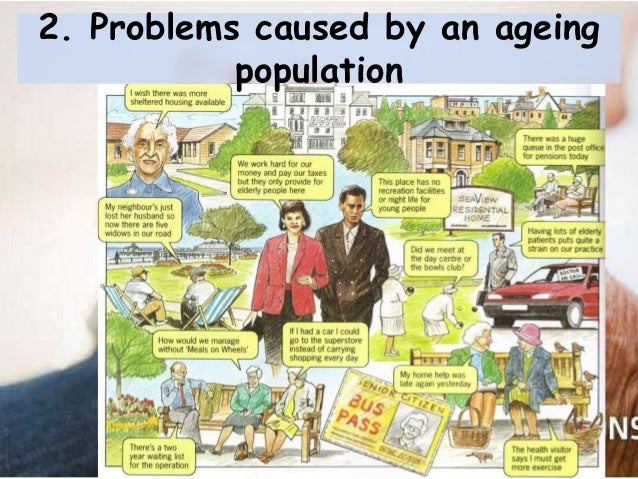
PAUL JAY: Welcome to The Real News Network.
I'm Paul Jay in Baltimore. We're now into the beginnings of the implementation
of what everybody, including President Obama, is calling Obamacare. So now we have a little
better idea of what it is and how it might work. Now joining us to talk about it are two critics
of Obamacare.
First of all, Kevin Zeese is codirector of It's Our Economy, an organization
that advocates for democratizing the economy. And also joining us is Dr. Margaret Flowers.
She's a pediatrician from Baltimore who advocates for a national single-payer health care system,
or Medicare for all. Thanks for joining us.
MARGARET FLOWERS: Thank you for having us. JAY: So tell us now. You have been critical
about this from the beginning. You were for single-payer during the health-care debate.
But now it's passed.
It's starting to be implemented. You have a better idea what it is. So how's
it looking? FLOWERS: Right. Well, it's looking pretty
much like what we expected.
Right now the United States is the only industrialized wealthy
nation that has a market-based health care system, and the Affordable Care Act moved
us further in the direction of a market-based health care system by requiring people who
don't qualify for the public programs to purchase private health insurance. That will be going
into effect. The exchanges where people will buy that insurance roll out in October of
this year. By January 2014, people have to have insurance or face a penalty.
But what we're seeing in terms of the type
of insurance that people are going to be offered and the trends of what people are actually
purchasing right now is we're moving more in the direction of what we call underinsurance,
where people may have an insurance plan, but there are significant financial barriers to
getting actual care and significant financial risks if someone has a serious accident or
illness. JAY: [crosstalk] FLOWERS: Well, what we see, it's interesting.
Over the last three years there's been a slowing in the rate of rise of our health-care spending
in this country, and it was interesting 'cause the president said in his State of the Union
address, oh, the Affordable Care Act is already working; we're seeing our costs slowing. But
the actual data shows that our costs are slowing because people are using less health services.
The copays and the deductibles that they face mean that they don't have the cash in their
hand to go and get those health-care services. And then what we're seeing in terms of bankruptcy--and
this is actually based on a study done before the economic crash, based on 2007 data--was
that 62 percent of our personal bankruptcies were due to medical costs and illness.
Almost
80 percent of those patients had some form of health insurance. If we look at Massachusetts,
that's had the same kind of legislation on the state level, the number of medical bankruptcies
there is actually rising. JAY: So why is that? If you have health insurance,
why are you going bankrupt? FLOWERS: Because they don't cover--well, they
have co-insurances, so at some level, you know, they cover up to this level, but after
that, your co-insurance is 20 percent, so you have to pay for 20 percent of the services.
They can say that services are uncovered services, and so then you're liable for those. They
can restrict the networks.
So an interesting--out in California, Blue
Cross Blue Shield out there, that covers the largest number of public employees, dropped
Cedars-Sinai and UCLA from their network because that's where people go when they need actual
health care. So if you have a serious problem and that's the place that can treat you, you're
going to have to hold a bake sale or sell your home or do something so that you can
afford that care. KEVIN ZEESE: And Obamacare's going to make
this worse, because what Obamacare does is, you know, there's several levels of insurance
coverage--90/10, where the insurance company pays 90 percent, consumer pays 10 percent;
80/20; 70/30; 60/40. The subsidy provided by Obamacare to people who can't afford insurance
will only cover 70/30 plans.
So when you get a serious illness, you're paying 30 percent
of the cost of that health care. Now, what's really bad about this is that
prior to Obamacare, some of the state insurance regulators were pushing insurance coverers
to a higher level, where they would provide more coverage rather than less. Obamacare
has now put it into law that 60/40 is okay and 70/30 is what the government will pay
for. And so the 80/20 and 90/10's become less common.
So you're going to see more and more
people with underinsurance and not going to see lack of insurance completely go away. In Massachusetts, which is basically the pilot
program for Obamacare--Romneycare was the pilot for Obamacare (it's pretty much the
same plan)--what you see up there is only about half of those people who are without
insurance got covered by Romneycare. The same is going to happen here. The Congressional
Budget Office is estimating 30 million or more people will have no insurance when Obamacare
is fully implemented.
But those who have insurance are going to now be coming with underinsurance. JAY: And this is all kind of new to me. I
mean, viewers of The Real News probably know I'm a dual citizen and I was in Canada until
recently, and we don't have any of this, right? It's single, you know--. ZEESE: You have a sensible program.
JAY: You have a government health-care plan,
and when you're born you get a health card, you show it, and that's kind of the end of
it. So now that I--I have not seen this before. The insurance I have down here now, I have
a copay, but there's--I think it's, like, a $3,000 cap. After that, the insurance pays
100 percent.
FLOWERS: Of covered services. If they say
something's not covered--. JAY: Okay. But are you saying that some of
this, that copay does not have a cap? FLOWERS: It's not that the copay doesn't have
a cap.
It's what the insurance companies are able to determine. You know, they'll say that
something is not covered, that it's experimental. Or we see this all the time, where they actually
charge people for things that are in their plan that they shouldn't be paying for. And
if you're not savvy enough to understand that your plan covers that service and then fight
for it--.
[Snip] before 2005, I think, looking at our
Blue Cross program here. And what they found was that about one out of every five claims
was denied just randomly. Like, if five claims come in, they just pull one out and say, we're
not paying this one. And it wasn't based on any rationality.
It was just a way of, you
know, being able to get more money. And we have evidence of this in New York from
people that worked in these claims offices that if there was a certain level area of
the city, lower-income area, they would deny those claims because they knew people didn't
have the resources to fight back. JAY: [crosstalk] go back to my example, we
had--I think it's an 80/20. So our copay-- ZEESE: That's good coverage in the United
States.
JAY: --wasn't so terrible. But, I mean, the
final bill had to be in the realm of close to $300,000. If it had been a 60/40, we would
have been toast. FLOWERS: Yeah.
Yeah. ZEESE: Exactly right. FLOWERS: And the other thing with that is
if your babies were born in December and you met that whole, you know, what your out-of-pocket
costs were in December and January, you start all over again. And that's where some families
just can't handle that.
ZEESE: And that's what they're finding in
Massachusetts is they're finding that with Romneycare, which was, as I said, the pilot
program for Obamacare, they're seeing that people are not going to get health care when
they need it, because they know when they go it's coming out of their pocket. And that's
not a good thing. When you put off the necessary health care, what that results in is a bigger
bill later. You know, if someone's having a problem--.
FLOWERS: Or a worse outcome. ZEESE: Or a worse outcome, or, yeah, you--. FLOWERS: You can't work 'cause you're disabled
now. ZEESE: Yeah.
So it gets more costly by not
taking care of the problem at the initial stage. You let it grow and get bigger until
you have no choice but to face it. And so in Massachusetts they're finding bankruptcies
are continuing at the same level. They're finding only half the people that were uncovered
are now covered.
And they're finding those who are covered are not getting health care
that they need. That's not the kind of health-care system we should have in the United States. FLOWERS: Costs are rising. ZEESE: It's not appropriate.
JAY: So where are we at with this, then, in
terms of the politics of this? Is there any chance this debate gets reopened in the next
two, three years? FLOWERS: That's really up to the people, whether
we force it to be opened or not. I mean, it's interesting right now that you
have, you know, more kind of these articles coming out in Time magazine looking at our
health-care system. And I'm not really sure what's behind that right now, unless they're
trying to maybe win the argument by creating it early and, you know, not allowing us to
make that argument. But I think what we're going to see over the
next couple of years is we're going to see continued rise in our health-care costs, continued
poor outcomes, families continuing to face financial barriers to care and bankruptcy.
And it's up to us to start saying that, you know, these things are not okay and that there
is a real solution.
We'd like to join the rest of the civilized world and have a publicly
financed health care system. ZEESE: And just to answer your question a
little more, there are people in the country who are working on this. FLOWERS: Absolutely. ZEESE: There are.
And more and more people
are looking at it through the prism of human rights. Health care is a human right. It's
not a commodity. We don't want Wall Street health care.
We want a human right-based health
care. And there are local--there's a Maryland health care human rights campaign. There's--Vermont
has one. Oregon.
They're in Washington. They're all--coming up all over he country, 'cause
people who are looking at how Obamacare is so far being implemented are seeing premiums
rise, health-care use going down. They're seeing more problems and they're seeing what
happened in Massachusetts. And so people who are aware are organized and getting more organized.
So there's ways to get involved in this and reopen this debate.
JAY: And are there--given how paralyzed national
national politics is on this issue, are there some local examples of where there are some
other alternatives? I know in--San Francisco, I believe, has essentially a single-payer--. ZEESE: They have a restaurant tax-- FLOWERS: Right, a restaurant tax that pays
for that. Yeah. ZEESE: --that pays for health care for people
in San Francisco.
Vermont has pushed as far as you can, so far, toward a single-payer
system. They have a number of steps to get there, but they have a good grassroots campaign
that's continuing to push. JAY: So there may be some initiatives at a
municipal/state level that might make some breakthroughs here. FLOWERS: Right.
ZEESE: But this needs to be a national solution.
I mean, really you want to be able to travel throughout the United States and have health-care
coverage. JAY: Yeah. In San Francisco, you just leave
the city and you've lost your coverage. ZEESE: That's what I mean.
FLOWERS: Right. And also, you know, the thing
that I often point out is that the United States is already spending more than enough
for a universal, comprehensive, high-quality health-care system. We spend two and a half
times what the average OECD nation, you know, industrialized nation spends per person on
health care. So we have the money to do this and we have the resources to do this, and
it's really just up to us to demand that we have the kind of health-care system that we
need.
And you can't get the cost--that was my point was that you can't get the real cost
savings unless you do this at a national level. ZEESE: What I was laughing about was I was
thinking about Congress [incompr.] All this craziness about deficit. Health care's 18
percent of our GDP and going up, and you're not going to solve the deficit for the long
term without solving health care. And that's not Medicare that's the problem.
That's not Medicaid.
The problem is the big part of the system, which is the market-based
system. Paul Ryan, in his idiocy, pushing toward privatization
of Medicare, why he thinks having an insurance company making profit off of elderly people
in their health care is going to lower costs is just absurd. It makes no sense. But that's
the state of the Congress.
And, you know, Obama's even talking about
reforms of Medicare that'll make it weaker, in my view. He's done some good things [crosstalk]
Medicare Advantage. It was a good move. That's a--Medicare Advantage is a nice name for private
insurance, which was ripping off elderly people is what it was really doing.
It was not a
good part of the elderly health care in our country. So he did some good things on challenging
that. But what we're seeing in Congress is no sensible
discussion on this issue. We're seeing them push in the wrong direction toward more privatization,
more cost, higher percentage of our GDP, and more deficit, and less health care for American
people.
FLOWERS: But the answer is simple, and as
long as the people understand what it is that we require and we don't settle for anything
less,-- JAY: Which is Medicare for all. FLOWERS: --which is Medicare for all, then
we can push in that direction and do it. JAY: Alright. Okay.
Thanks for joining us,
Margaret, Kevin. FLOWERS: Thank you. ZEESE: Thank you. JAY: And thank you for joining us on The Real
News Network..







